In the realm of industrial filtration, separation, and structural applications, Stainless Steel Wire Mesh stands as an indispensable material. Its exceptional properties, including superior corrosion resistance, high tensile strength, and remarkable thermal stability, make it a preferred choice across a myriad of demanding environments. The global market for wire mesh is experiencing robust growth, driven by increasing industrialization, stringent environmental regulations necessitating advanced filtration systems, and burgeoning demand from the automotive, construction, and petrochemical sectors. This material’s adaptability to various weave patterns and mesh sizes allows for precise customization, catering to specific requirements from microscopic filtration to heavy-duty industrial sieving. Manufacturers are continuously innovating to enhance production efficiency and product performance, ensuring that this versatile material continues to meet evolving industrial challenges with unparalleled reliability and longevity.
The production of Stainless Steel Wire Mesh is a sophisticated process demanding precision and adherence to strict quality controls, starting from the raw material selection. The journey begins with high-quality stainless steel wire rods, primarily grades like 304, 304L, 316, and 316L, chosen for their specific chemical compositions and metallurgical properties that dictate the final mesh's corrosion resistance and mechanical strength. These rods undergo a drawing process, where they are pulled through a series of progressively smaller dies to achieve the desired wire diameter. This step is critical as it refines the wire's microstructure, enhancing its tensile strength and ductility.
Following wire drawing, the wires are then fed into automated weaving or welding machines. Woven mesh, characterized by its flexibility and diverse patterns (plain weave, twill weave, Dutch weave), is produced by interweaving warp (longitudinal) and weft (transverse) wires. Welded mesh, conversely, is created by resistance welding intersecting wires at each joint, resulting in a more rigid and stable structure. Each manufacturing stage, from wire drawing to weaving or welding, is monitored against stringent quality assurance protocols. Critical inspection standards, such as ISO 9001 for quality management and ASTM E2016 for mesh dimensions, ensure product consistency and performance.
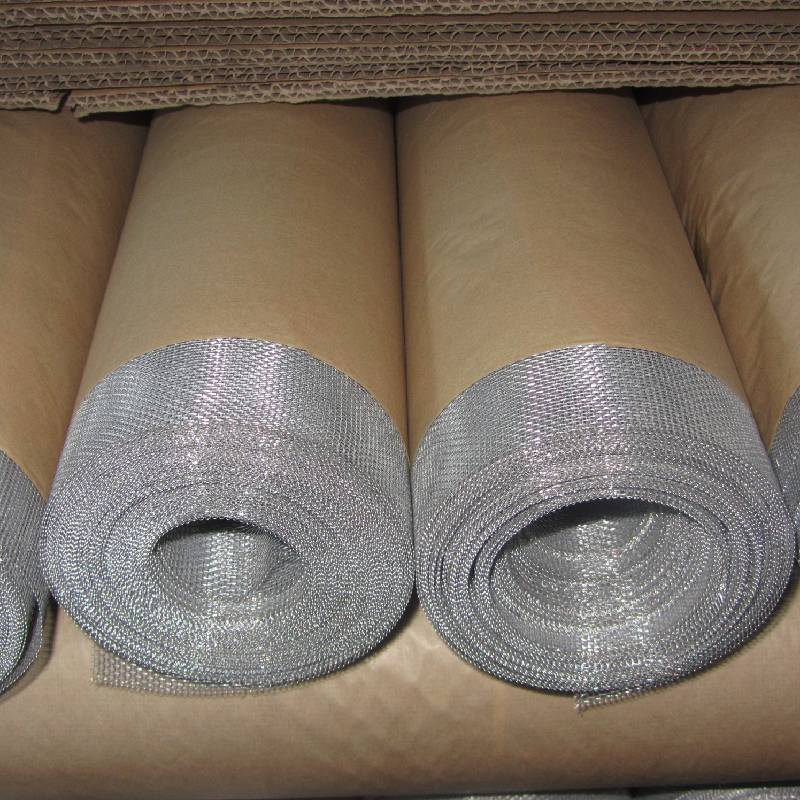
Post-production, the mesh may undergo further treatments like annealing for stress relief, cleaning to remove lubricants, or passivation to enhance its inherent corrosion resistance by forming a protective oxide layer. The typical lifespan of Stainless Steel Wire Mesh is significantly extended due to these manufacturing and treatment processes, often exceeding decades in ideal conditions. This durability makes it exceptionally suitable for demanding industries such as petrochemical, where it's vital for catalytic converters and strainers; metallurgy, for furnace screens and sieves; and water/wastewater treatment, where it is used in filtration systems. Its robust design contributes to energy saving by maintaining optimal flow rates and preventing blockages, while its inherent anti-corrosion properties ensure longevity in aggressive chemical environments.
Selecting the appropriate Stainless Steel Wire Mesh requires a detailed understanding of its technical parameters. These specifications dictate the mesh’s performance in terms of filtration efficiency, flow rate, mechanical strength, and overall durability. Key parameters include the material grade (e.g., SS304, SS316), mesh count (number of openings per linear inch), wire diameter, and opening size (aperture). The interaction between wire diameter and mesh count directly influences the open area percentage, which is crucial for determining flow capacity and filtration precision. For example, a finer mesh count with thinner wires will have a higher open area and offer higher flow rates while maintaining fine filtration.
Below is a table outlining common specifications for various types of Stainless Steel Wire Mesh, illustrating the breadth of options available for different industrial needs. Understanding these metrics is paramount for engineers and procurement specialists to ensure the selected mesh aligns perfectly with operational demands and performance criteria.
| Parameter | Plain Weave (Standard) | Twill Weave (Enhanced Strength) | Dutch Weave (Fine Filtration) | Welded Mesh (Structural) |
|---|---|---|---|---|
| Material Grades | SS304, SS316 | SS304L, SS316L | SS316, SS316L | SS304, SS316 |
| Mesh Count Range (per inch) | 2 to 400 | 80 to 635 | 10x80 to 500x3500 | 1/4" to 4" (Opening size) |
| Wire Diameter Range (mm) | 0.025 to 2.0 | 0.025 to 0.18 | 0.025 to 0.45 | 0.5 to 6.0 |
| Aperture (Opening Size) Range (microns) | 37 to 9500 | 20 to 180 | 5 to 250 | 6350 to 101600 |
| Key Advantage | Versatile, Cost-effective | Higher load bearing, Finer filtration | Exceptional fine filtration, High pressure | Rigid, High strength, Structural integrity |
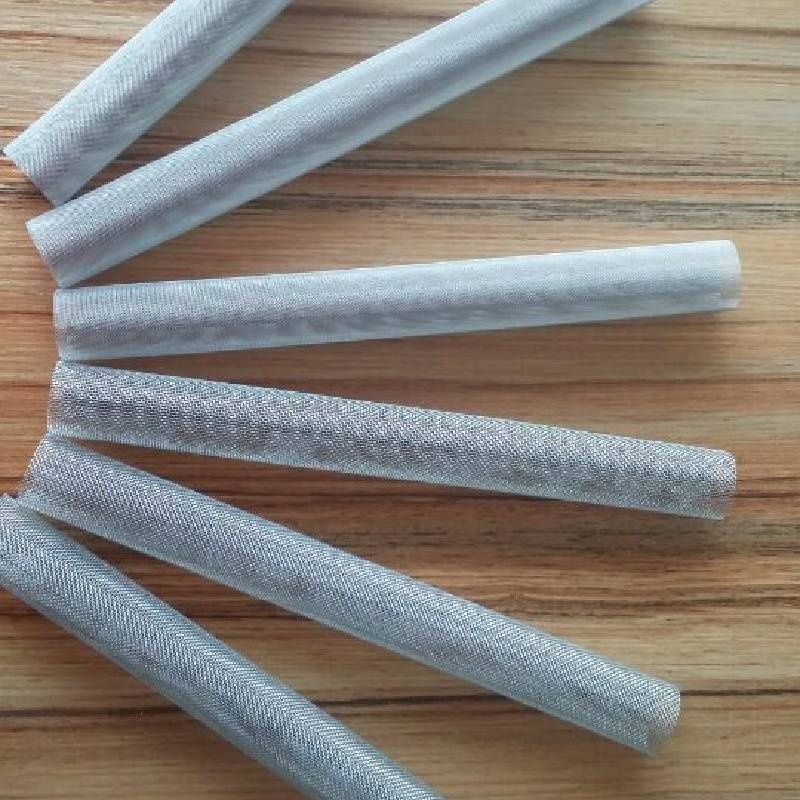
The technical advantages of Stainless Steel Wire Mesh are extensive, making it an ideal choice for critical applications where material integrity and performance are paramount. Its inherent corrosion resistance, particularly in grades like 316 and 316L, means it can withstand aggressive chemical environments, including exposure to acids, alkalis, and chlorides, without significant degradation. This property is crucial in industries such as chemical processing, where it is used for catalyst support and reactor screens, and in marine applications for seawater filtration. The resistance to high temperatures also makes it suitable for furnace belts, heat treatment baskets, and high-temperature filtration in exhaust systems.
Beyond corrosion and heat resistance, Stainless Steel Wire Mesh exhibits excellent mechanical strength and ductility, allowing it to withstand high pressure differentials and mechanical stress without deforming or failing. This makes it invaluable in pressure filtration systems and as reinforcement in composite materials. Its non-toxic and hygienic properties are critical for applications in the food and beverage industry (e.g., brewing filters, food processing screens) and pharmaceutical manufacturing, where material purity is non-negotiable. Furthermore, its ease of cleaning and sterilization contributes to maintaining high sanitary standards, reducing downtime, and extending the lifespan of filtration systems.
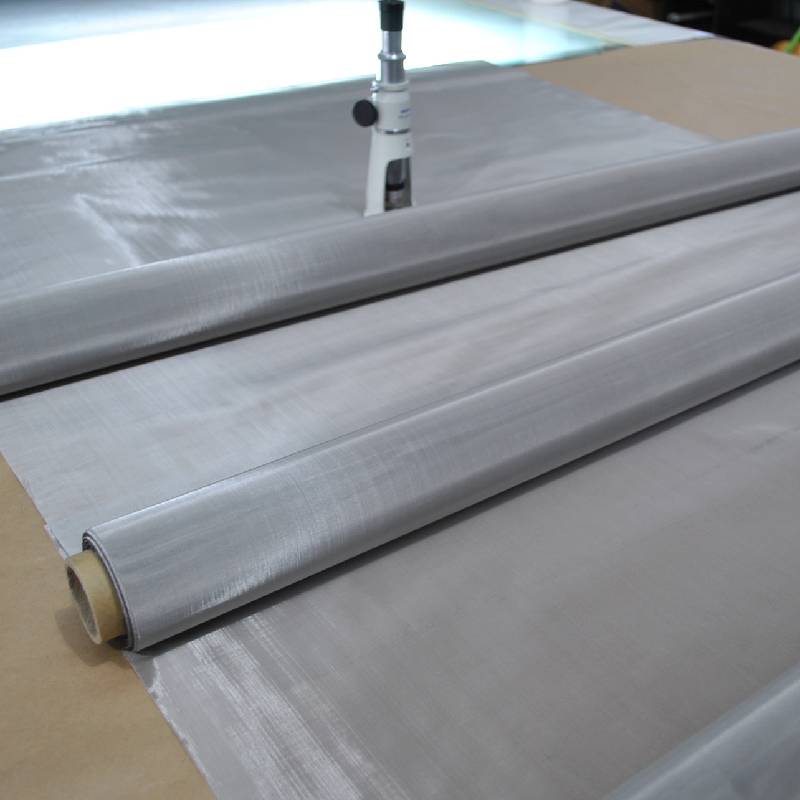
In terms of specific application scenarios, in the petrochemical industry, fine mesh filters made of stainless steel prevent impurities from damaging sensitive equipment, ensuring operational efficiency and reducing maintenance costs. In architecture and design, the aesthetic appeal combined with structural strength allows for innovative uses in facades, railings, and decorative panels, showcasing the material’s versatility beyond its primary industrial functions. For example, large panels of woven Stainless Steel Wire Mesh can be seen forming modern building exteriors, providing solar shading while maintaining transparency, a testament to its multifaceted utility.
Choosing the right manufacturer for Stainless Steel Wire Mesh is as critical as selecting the correct mesh type itself. A reputable supplier should demonstrate deep industry expertise, a proven track record of quality, and robust capabilities in R&D and customization. Key considerations when evaluating manufacturers include their adherence to international standards like ISO 9001, their material sourcing traceability, and their comprehensive quality control procedures throughout the production cycle. Manufacturers with extensive experience, often spanning decades, are more likely to offer reliable products and insightful technical support.
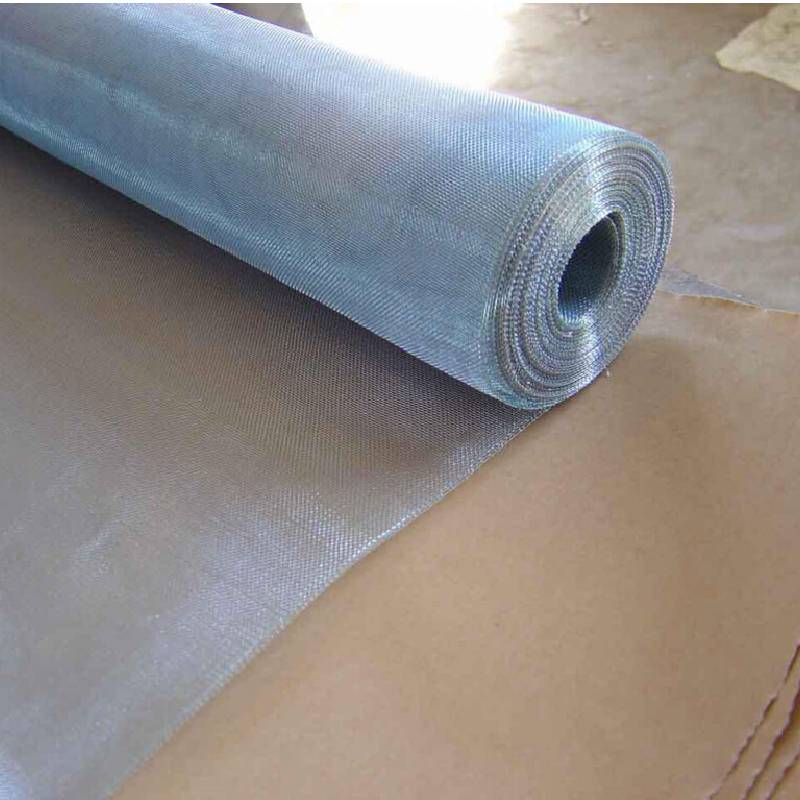
Customization is often a vital requirement, particularly for specialized industrial applications. Leading manufacturers offer extensive customization options, including specific mesh counts, wire diameters, material grades, weave patterns, roll widths, lengths, and even fabricated mesh components (e.g., cylinders, discs, baskets). This bespoke approach ensures that the Stainless Steel Wire Mesh perfectly fits the unique demands of an application, optimizing performance and integration. For instance, a client might require a specific "Dutch weave" mesh with a precise micron rating for ultra-fine filtration in a pharmaceutical process, or a heavy-gauge "welded mesh" for structural support in a harsh mining environment. A capable manufacturer will possess the engineering prowess to translate these specific needs into a precise product solution. The ability to provide detailed technical drawings, performance data, and material certifications (e.g., mill test reports) further underscores a manufacturer's commitment to quality and transparency.
The practical utility of Stainless Steel Wire Mesh is best demonstrated through its diverse application cases across industries. In the oil and gas sector, particularly within drilling operations, precision woven mesh is essential for shale shakers, separating drilling mud from solids to allow for reuse, significantly reducing waste and operational costs. For example, a major oilfield service company reported a 15% reduction in mud disposal volumes after implementing advanced stainless steel screens, leading to substantial environmental and economic benefits.
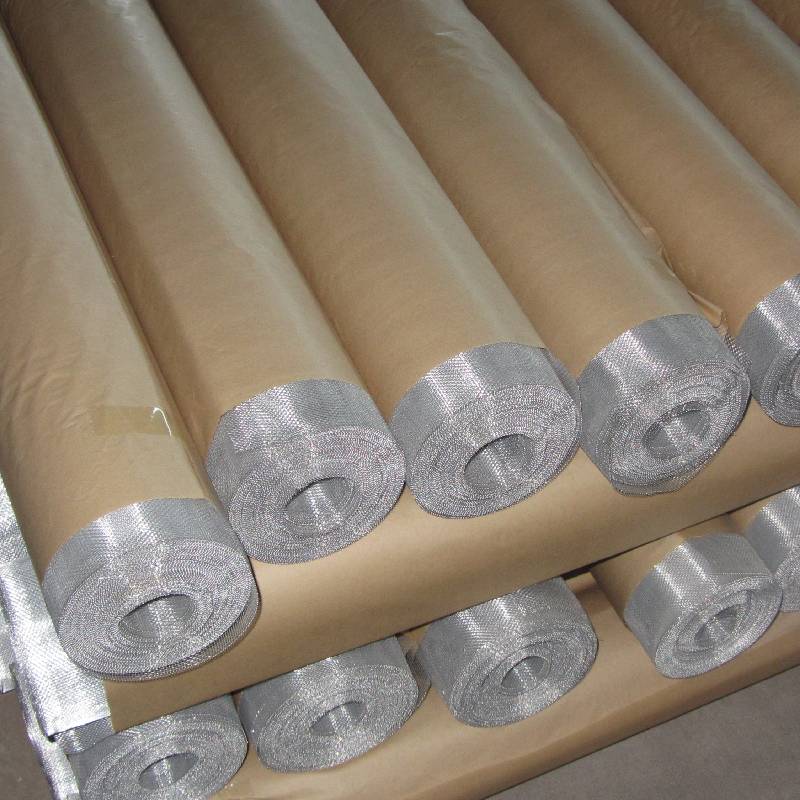
Another compelling case is in the pharmaceutical industry. A leading drug manufacturer utilizes ultra-fine stainless steel mesh filters (down to 5 microns) in their active pharmaceutical ingredient (API) production lines. These filters ensure absolute purity of intermediates and final products, directly impacting drug efficacy and patient safety. Client feedback consistently highlights the mesh's reliability, ease of cleaning, and long service life under strict cGMP (current Good Manufacturing Practices) environments, reducing the frequency of filter replacements and associated operational disruptions. Furthermore, in the realm of wastewater treatment, large-scale municipal plants employ heavy-duty Stainless Steel Wire Mesh for preliminary screening to remove coarse solids, protecting downstream equipment and enhancing the efficiency of biological treatment processes. The material's corrosion resistance to treated wastewater and biological agents ensures continuous, maintenance-light operation, making it a critical component for sustainable urban infrastructure.
Establishing trust with B2B clients in the Stainless Steel Wire Mesh sector is founded on unwavering commitment to quality, transparency, and comprehensive support. Reputable suppliers not only meet but often exceed industry benchmarks, holding certifications such as ISO 9001 for quality management systems and ensuring compliance with relevant ASTM standards for material specifications and testing. Our commitment to quality is underscored by rigorous testing protocols, including material composition analysis, tensile strength tests, and accurate mesh opening measurements. We also provide full material traceability, from raw coil to finished product, giving our clients complete peace of mind.
To further solidify customer confidence, we offer comprehensive pre-sales consultation and robust post-sales support. Our standard lead times are typically 2-4 weeks for custom orders, with expedited options available for urgent requirements, ensuring project timelines are met efficiently. All our Stainless Steel Wire Mesh products come with a minimum 12-month warranty against manufacturing defects, reflecting our confidence in our product's durability and performance. Customer service is paramount, with dedicated technical support available to assist with product selection, installation guidance, and troubleshooting.
Q: What are the common grades of stainless steel used for wire mesh?
A: The most common grades are 304 and 316. Grade 304 offers good corrosion resistance for general applications, while 316 provides superior resistance, especially in chloride environments, due to the addition of molybdenum.
Q: How do mesh count and wire diameter affect performance?
A: Mesh count refers to the number of openings per linear inch. A higher mesh count means finer filtration. Wire diameter influences the mesh’s strength and open area; thicker wires result in a stronger but less open mesh, impacting flow rate.
Q: Can Stainless Steel Wire Mesh be customized for specific applications?
A: Absolutely. Customization is a key strength. We offer tailored solutions regarding mesh count, wire diameter, weave pattern, dimensions (rolls, sheets, fabricated parts), and specific finishes to meet precise client requirements.
RELATED PRODUCTS